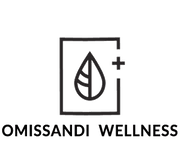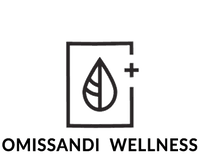Dr. Stern: Hi, today's question comes from Tiffany and she has a really great question. She wants to know what is a natural way she can use to lower stomach acid because she's been diagnosed with GERD.
That stands for gastroesophageal reflux disease, also known as heartburn. She has stomach pain, bad coughing, basically all the things that come with GERD. So she wants to know what is a natural way to lower stomach acid without taking antacids.
Now, this is a great question because millions of people take antacids. Some are called H2 blockers and some are called proton pump inhibitors, PPI for short. It's one of the most prescribed medications.
Now I wanna help this person with a healthy solution, so I'm gonna give her five natural ways to help heal GERD, heartburn, gastritis and all the issues that come with it. But I am not gonna give her five ways to lower stomach acid because lowering stomach acid isn't the problem.
That's right, the problem is not that there is too much acid. The problem is that there is too little acid. So, I'm gonna give you a quick little scientific explanation on this because you have to understand why it's so critical to get off these antacids and start using this five step natural approach.
Here's how it goes, when you eat food it goes down the esophagus, and it passes a one-way valve called the LES, or the lower esophageal sphincter. When the food gets in the stomach, something breaks that food down into really small pieces so we can digest and absorb it in our small intestines and that something is acid.
We need acid to break and absorb protein, break down and absorb vitamin C, B12, zinc, iron, calcium, all these vital minerals and nutrients that are needed for our body to function at 100%.
If we don't have it, people have shown to get osteoporosis and anemia, and all of these side issues are due to the fact that they've been on antacids causing them to lowering their stomach acid.
So, here's what happens, if there's not enough acid in the stomach, not only are we not absorbing these nutrients, we're also not killing the bad microbes that are coming in from the food.
So acid serves two critical points.
Number one, obviously, is the breakdown and digestion of these vital nutrients. People who have been on antacids for a long time have two big problems - nutrient depletion and a dysbiosis. Their bad bacteria is proliferated, grown, and it's not in balance with the good bacteria that we need for a healthy body.
Here is the five step approach we need to take care of this.
When the acid is too low in the stomach, the acid will not trigger the LES to close because that LES is a one-way valve. Acid is what keeps it shut, so when acid doesn't come up from the stomach, it goes onto the esophagus, which is not meant to handle the acid. And that's why people get GERD.
The way to keep that valve shut is to have a proper amount of acid in the stomach, not too little acid. And this is how you do it.
Number one, you're gonna have to change your diet. The things that affect acid production is a healthy diet.
So get rid of the sugars, get rid of the processed grains. Get rid of dairy products, initially, and increase fruits and vegetable intake. Make sure you're having sprouted grains. And if you are gonna have dairy products make sure they're from grass-fed cows.
Number two, we have to create a balance between the good and bad bacteria. Like I said, when you've been having low acid for awhile it's going to allow the bad bacteria to grow because acid is so critical in killing the bad bacteria.
We need to make sure that you're getting good bacteria back in your body in the forms of fermented foods, such as kefir, kimchi, and sauerkraut.
Or you can take a great probiotic supplement.
I've formulated my own probiotic supplement, and it's really wonderful. It has the exact amount of colony-forming units you need, which are called CFUs: 20 billion, scientifically researched. You also have to have a prebiotic to make sure these bacteria are nourished, so I threw a prebiotic in there. Lastly, I put in something called L-glutamine, which is so critical as well and we'll get to why in a minute.
The third thing you need to do is repair nutrients. If you've had acid reflux and GERD for a long time, you're inflamed in there, there's no doubt your tissue needs to repair.
My four repair nutrients I recommend are L-glutamine, like I said. I also love DGL licorice root. Make sure it says DGL because straight licorice root might raise your blood pressure.
Another thing is aloe vera. These nutrients help repair the lining of the esophagus and stomach if they've been irritated due to the fact that you've had low stomach acid for a while.
And this acid reflux has been there for some time.
The next thing you need to do to treat and heal GERD is to take care of something called H. pylori.
70% of people who have old stomach ulcers, and a majority of people who have GERD have this one bad microbe that sits in their stomach lining and secretes stomach acid. So what we need to do to kill H. pylori and manuka honey works great for that.
Make sure you're doing it on an empty stomach, that's number one. Number two, garlic is good at inhibiting H. pylori growth. And the third thing I recommend are cruciferous vegetables like
Broccoli and cauliflower. Broccoli sprouts especially have a certain nutrient in there that can help inhibit H. pylori growth.
H.pylori loves an alkaline environment, so when you're taking antacids, H. pyloriis healthier and happier because now it can proliferate and cause more problems.
So, since we also have to kill the H. pylori with an acidic environment the fifth thing I love is make sure that you're doing a little apple cider vinegar about 30 minutes before your food.
Take about a teaspoon initially with a glass of water. Do that to start setting up an acidic environment so that that valve will stay shut and the acid doesn't start hitting the esophagus.
Again, these are all tips to make sure that your stomach is balanced with the good versus bad bacteria. Then you start to produce the right amount of acid to keep that valve shut.
Make sure you're eating a good and healthy diet so that your body is not producing these bad bacteria,and that you're making the right amount of acid that you need to kill the bad bacteria coming into your system. And, also make sure to get the nutrients that you need, so you can digest properly.
Now, if you've had this problem for a long time and you eat a particular food, like, say tomatoes or something spicy that irritates or inflames your region, until your body gets health, and until the lining gets nice and strong, stay away from those foods.
Stay away from coffee,spicy foods, tomato-based foods, and citrus-based foods, for the time being until the lining gets nice and healthy. I'm not saying that you have to get rid of them forever, but at least initially until the lining gets nice and healthy.
So, those are the tips to help you with GERD, to help you with heartburn. If you're on medication always speak with your doctor before you come off just so that he can work you off properly.
But understand this, scientifically, your body needs acid to kill those bad microbes, to absorb so many nutrients, to make your body work the way it's meant to work: efficiently and with lots of energy.
So make sure that you take all these tips, take care of business, and you will feel amazing. If you have any health questions always feel free to reach out, I'm always happy to answer. I hope you have an amazing holiday, have a great night!


